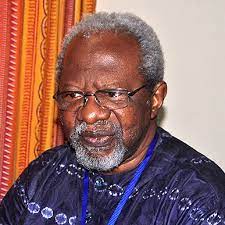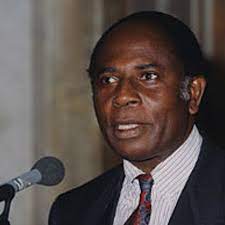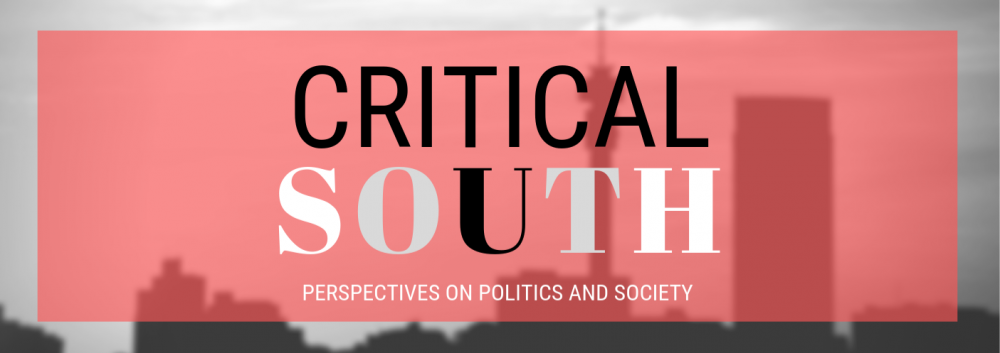
Paulin Hountondji is Professor Emeritus at the National University of Benin in Cotonou and is a Research Associate in Political Theory at the School of Social Science at the University of the Witwatersrand in Johannesburg. He has published a number of influential texts on the history of African Philosophy, and is considered one of the most important figures in this field.

Kwasi Wiredu remains the greatest African philosopher. Until his recent death, he was the oldest and greatest, despite his almost shocking modesty. Although many – both before and after him – have published original works of great depth, his precision, nuance, rigor of analysis and, moreover, sense of humour, was incomparable.
A Ghanaian philosopher, Wiredu bowed out on January 6, 2022 in Tampa, Florida, USA, at the age of 90. He leaves behind a wife, the elegant and dynamic Adwoa[i] Gifty, 5 children, 11 grandchildren, 2 great-granddaughters aged 6 and 4 and a swarm of readers and disciples who will continue, from generation to generation, to feed on his penetrating views and his immense contribution.
Born on October 3, 1931 in Kumasi, Wiredu studied philosophy first at the University of Ghana in Legon, a suburb of Accra, then at the University of Oxford in Great Britain. He exerted considerable influence through numerous articles grouped in two collections:
- Philosophy and an African Culture, a collection of articles from 1966 to 1976[ii]
- Cultural Universals and Particulars
Wiredu also edited: - A Companion to African Philosophy, with the collaboration of William Abraham, Abiola Irele, Ifeanyi Menkiti.
And along with his compatriot Kwame Gyeke, he co-edited the book Person and Community.
It is a pity that he remains largely unknown in French-speaking Africa![iii] I heard about him as early as 1967, during a symposium organised by the African Cultural Society (alias Présence Africaine) and the Association of Scandinavian Friends of “Présence Africaine” in Denmark. He was already, I believe, head of the philosophy department at Legon and was represented at this conference by Martin A. Kissi.
Later, during my brief but fascinating stay in Kinshasa and Lubumbashi, which took place at the same time that Mobutu’s Congo was being renamed Zaire, the philosophy department accepted my proposal to launch a bilingual journal called the Cahiers Philosophiques Africains / African Philosophical Journal. I was editorial secretary. The first issue published, among other things, an article by the Kenyan philosopher Odera H. Oruka, who was at that time still known as Henry O. Odera. But there were no contributions from Wiredu.
My first real encounter with Wiredu was in 1972 when I permanently returned to Dahomey (present day Benin). One of the first initiatives upon my return was to create a structure for exchanges and discussion between black African philosophers of all sub-disciplines and ideological orientations. The idea was simple: until then, like their colleagues in other disciplines, African philosophers had prioritised vertical exchanges with their European and Western counterparts. But it was time to favour horizontal exchanges between Africans. I was young, I was daring. The roads in Nigeria were good and less dangerous than today. I drove to the universities of Lagos and Ibadan, to the University of Ifè – which has since been renamed Obafemi Awolowo University – where the late Olubi John Sodipo, then head of the philosophy department, edited a remarkable philosophical journal, Second Order. Then I went to Lomé and Accra. The University of Ghana guesthouse was comfortable. I was warmly welcomed by Wiredu. We shared the same ideas. Appointment was made for a meeting in Cotonou.
This meeting took place on January 3, 1973, in a modest classroom of the Protestant secondary school in Cotonou then directed by the late Samuel Akle, himself a philosopher, the constituent assembly of an association called the Inter-African Council for Philosophy (IACP).
Olu Sodipo was elected president, Abdoulaye Elimane Kane, from the University of Dakar, 1st vice-president, Wiredu was 2nd vice-president, Aloyse-Raymond Ndiaye from the University of Dakar general treasurer, Odera Oruka from the University of Nairobi Assistant General Treasurer and myself Secretary General. The IACP immediately requested and obtained its affiliation to the International Federation of Philosophical Societies / Fédération Internationale des Sociétés de Philosophie (FISP), an institution which organizes the World Philosophy Congress every five years in conjunction with UNESCO.[iv] The IACP was thus de facto affiliated, through FISP, to the International Council for Philosophy and Human Sciences / Conseil International de la Philosophie et des Sciences Humaines (CIPSH) based in Paris in the premises of UNESCO, and whose Secretary General was then Jean d’Ormesson of the French Academy.
It was out of the question to transfer the African Philosophical Journal to Cotonou as it was rightly claimed by the National University of Zaire (UNAZA) as its inalienable property. We therefore created a bi-annual publication, Consequence: journal of the Inter-African Council for Philosophy. The first issue contained, among other texts, the French translation of an article by J. E. Wiredu (as he was still known at the time)[v] previously published in English in Universitas, an inter-faculty journal of the University of Ghana.
At the end of the 1970s UNESCO decided to launch a vast survey of philosophical teaching and research in the world. The head of the philosophy division, Moroccan scholar Mohamed Allal Sinaceur, asked me to carry out this survey for French-speaking Africa. An Anglophone scholar was needed to conduct the same survey in English-speaking Africa. It was Wiredu.
The lessons of this double investigation were to be drawn during a UNESCO experts’ meeting organized in Nairobi in June 1980. Wiredu presented a remarkable paper, in which he urgently called for a ‘conceptual decolonization’, no more and no less.[vi] For him, a multitude of concepts and statements that seemed self-evident as long as they are stated in European languages were simply unthinkable in African languages. The universality of these concepts and statements were therefore only a false universality.
A very simple example of this is the Cartesian cogito. Instead of this inaugural certainty on which Descartes intended to have found the whole edifice of knowledge: ‘I think, therefore I am’, the Kenyan John Mbiti found it more natural to say: ‘I am because we are. And since we are, therefore I am’.[vii] Before him, Senghor had formulated what seemed to be the reaction of the Black African to the cogito: ‘I feel, I dance the Other, I am’. Alexis Kagame had shown the incongruity of the expression ‘I am’, which remained unintelligible in the Bantu languages as long as it was not supplemented by determinants that give it meaning: I am this or that, I am such place, etc.
Wiredu, in turn, took specific examples from the Akan languages to relativize and put in their proper place some of the most classic notions of the Western philosophical tradition. And at the end of his communication, he launched this appeal in the form of a manifesto: ‘African philosophers, let us learn to think in our own languages!’
I have never forgotten this lesson from Wiredu. It came to meet my militant convictions on the need for rehabilitation and development of African languages. But what Wiredu shows is that this claim, which at first sight is simply political, refers to an infinitely deeper issue; that beyond political, economic and cultural decolonization, the most radical issue is conceptual decolonization.
The Kenyan novelist Ngugi wa Thiong’o [viii] will say the same thing differently when calling for ‘decolonizing the mind’.[ix] Suiting the deed to the word, he will say his ‘farewell to the English language’ and will henceforth write novels and plays in his mother tongue, Kikuyu, or in his vernacular language, Kiswahili, even if it means leaving it to others the care of translating them into English if they deem it useful.
Born on January 5, 1938, Ngugi is six years younger than Wiredu. In a way, the latter didn’t go that far. He did not say goodbye to the English language. He has not resolved to write now only in his mother tongue, Twi, or in another Akan language. But the difficulty was not the same. Because philosophy is not literature. Telling is one thing, thinking is another. Telling a story, real or fictional, in an African language is different to analysing problems and forging the right concepts for this purpose.
In line with what Wiredu wanted, 15 years ago the African-Canadian philosopher Chike Jeffers remarkably solicited several African philosophers to write original articles in their languages. The young academic won his bet. The result was a multilingual collection where the original texts appeared on the left and the English translation on the right.[x] A preface by Ngugi wa Thiong’o written in English, inevitably, opened this collection where texts written in seven African languages followed one another. Wiredu’s closed the collection. Its original Twi title, Papa ne Bone, translated into English as Good and Evil. [xi]
Beyond the Legon campus, Wiredu has enjoyed national influence in his country. Philosophy and an African Culture was originally the title of his acceptance speech at the Ghana Academy of Arts and Sciences, delivered in October 1976, before it became the title of a book of which this speech constituted the first chapter.
Beyond Ghana, he radiated on the continent, lecturing in various countries in sometimes restricted frameworks, as in Benin, or in broader frameworks as in Abidjan, Nairobi and elsewhere. In 1984 he carried out a visiting professorship at the University of Ibadan in Nigeria.
Beyond the continent, like many African academics, he yielded to the attraction of America. Contributing to the influence of Africa, Wiredu has carried out teaching assignments at the University of California in Los Angeles, at the University of Richmond in Virginia, at Duke University in North Carolina. Since 1987, he held a permanent position at the University of South Florida in Tampa, where he became a Distinguished Professor.
The patriarch is gone. As part of the fourtieth day ceremonies, a solemn tribute was paid to him at Legon under the joint aegis of the University and the Ghana Academy of Arts and Sciences . Both institutions have claimed him. Africa has claimed him. It only remains for us to fully integrate him into our intellectual heritage and to continue his fight.
[i] Pronounced a’joa
[ii] French readers are tempted to translate: “Philosophie et culture africaine – as if the English title were: Philosophy and African Culture. The indefinite article (an African Culture) clearly indicates that it is a specific African culture, the Ghanaian culture, and more precisely, as the contents of the book show, the culture of the Akan.
[iii] Lucien Gagni, now philosophy teacher in a high school in Parakou, North Benin, prepared under my direction and defended in 2009 at the University of Abomey-Calavi an excellent dissertation for a diploma of advanced studies (DEA), which has remained unpublished, on Kwasi Wiredu : presentation, commentary and partial translation of Philosophy and an African Culture. In addition, we will read with interest an exhaustive and critical study of Wiredu’s work published by a Nigerian academic, Sanya OSHA: Kwasi Wiredu and Beyond: the Text, Writing and Thought in Africa. Dakar: CODESRIA Press, 2005
[iv] The general assembly of FISP is held every five years within the framework of this congress. On this occasion FISP renews its steering committee. Wiredu was thus co-opted at the 18th World Congress in Brighton (Great Britain) in 1988 and reappointed for a second term at the 19th Congress in 1993 in Moscow. Aloyse-Raymond Ndiaye was co-opted at the 20th Congress in Boston in 1998 and reappointed for a second term at the 21st Congress in 2003 in Istanbul. I myself was co-opted in Istanbul in 2003, reappointed for a second term at the 22nd Congress in Seoul in 2008 and for a third and final term (now authorized by the rules of procedure) at the 23rd Congress in Athens, Greece, in 2013. Since the 24th congress meeting in Beijing in 2018, the CIAP is represented by Suleyman Bachir Diagne
[v] J. E. = Johnson Emmanuel, as he told me at the time.
[vi] Kwasi Wiredu, “Philosophical Research and Teaching in Africa: Some Suggestions (Toward Conceptual Decolonization)” in Teaching and Research in Philosophy: Africa. Paris: UNESCO, 1984
[vii] See John Mbiti, African Religions and Philosophy. London: Heinemann, 1969
[viii] Like Oruka and Wiredu, Ngugi also changed his name. He was initially known as James Ngugi.
[ix] Ngugi wa Thiong’o, Decolonizing the Mind. The Politics of Language in African Literature. London/Nairobi: Heinemann Educational, 1986
[x] Chike Jeffers (ed.), Listening to Ourselves: Multilingual Anthology of African Philosophy. New York: State University of New York Press, 2013
[xi] The exercise is not that easy. I had also been asked, but I was unable to complete my article on time. And despite the encouragement of Chike Jeffers who promised to publish it separately, I still have on my computer since 2009 this unfinished article which I had titled in Gungbe (the vernacular language of Badagry, Nigeria and Porto-Novo, Benin which is very close to Fongbe, the Fon language spoken in Benin and all other Gbe languages wherein a language is called Gbe): “Núdodíndín: dagbe kaví ylankan? (Curiosity, value or counter-value?)

 Manjeet Ramgotra teaches political theory in the Department of Politics and International Studies at SOAS University of London. Her research, teaching and writing focus on decolonising political theory and reinterpreting republicanism in both the history of western ideas and twentieth-century anti-colonial thought.
Manjeet Ramgotra teaches political theory in the Department of Politics and International Studies at SOAS University of London. Her research, teaching and writing focus on decolonising political theory and reinterpreting republicanism in both the history of western ideas and twentieth-century anti-colonial thought.